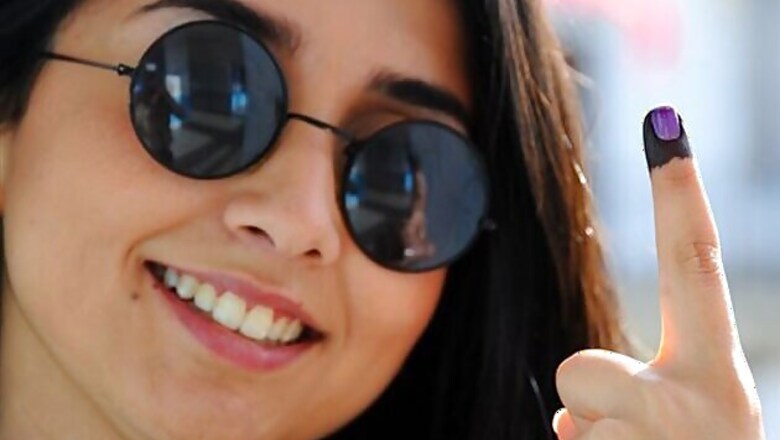
views
Tunis: Tunisia took another step forward in its peaceful transition to democracy on Sunday by holding its first free presidential election, with voters hoping for more stability and a better economy.
Many Tunisians weighed security against the freedoms brought by their revolution and by its democratic transition, which has remained on track in sharp contrast to the upheavals brought by the Arab Spring elsewhere in the region, including the brutal military coup in Egypt and the conflicts in Syria, Yemen and Libya.
It hasn't been easy for Tunisia, however, and the nearly four years since the revolution have been marked by social unrest, terrorist attacks and high inflation that has voters punishing the moderate Islamists that first came to power.
The front runner of the nearly two dozen candidates for the presidency is Beji Caid Essebsi, an 87-year-old former minister from the previous administrations who many are hoping will get the country back on track.
"He is a veteran politician with experience that can ensure security and stability," said Mouldi Cherni, a middle age driver living in Tunis' Carthage suburb who voted for Essebsi. "The people are tired, life has grown expensive and Tunisians don't even have enough to make an ojja," the local omelet favored by the poor.
The strikes, social unrest and occasional political assassinations have kept away foreign investment and the economy foundered after the revolution as an Islamist-led coalition government struggled with the country's problems.
In the end, the Islamist Ennahda Party stepped down at the start of the year in favor of a government of technocrats, but they still completed one of the region's most progressive constitutions.
The Islamists, who won about a quarter of the seats in parliament, opted not to field a presidential candidate.
Voters have since turned to Essebsi's Nida Tunis party, a loose collection of liberal and leftist politicians, giving them nearly 38 percent of the new parliament last month.
There are fears, however, that Essebsi has authoritarian tendencies and that his domination of the parliament and the presidency could bring back the old one party state.
In Tunisia, the main power resides with the prime minister. The presidency is a largely symbolic post with some responsibilities for defense and foreign affairs.
Opposition to Essebsi has coalesced around the current interim president, Moncef Marzouki, a veteran rights campaigner who is respected for his long fight against tyranny.
"I voted for a man I thought was clean, with integrity and sincerity," said Azzedine Issaoui, in Tunis' working class district of Kram, who said he chose Marzouki.
The lines as voters gathered in the morning at polling stations were not as long as last month's parliamentary elections, and for the first half of the day younger voters were largely absent.
If no candidate gains an outright majority, there will be a runoff between the two top vote getters on Dec. 28.
Other possible candidates for a runoff include Hamma Hammami of the left-wing Popular Front coalition and millionaire football club owner Slim Riahi.




















Comments
0 comment